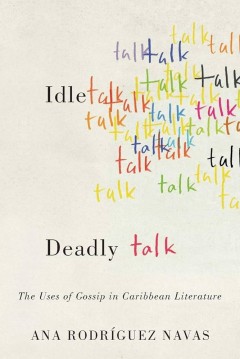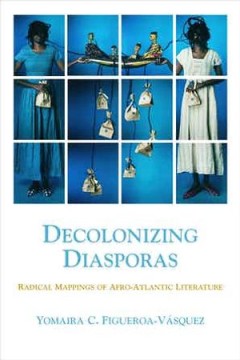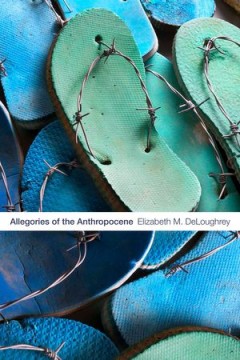Filter by

Idle Talk, Deadly Talk : The Uses of Gossip in Caribbean Literature
The first book-length study of gossip’s place in the literature of the multilingual Caribbean reveals gossip to be a utilitarian and deeply political practice—a means of staging the narrative tensions, and waging the narrative battles, that mark Caribbean politics and culture. Revising the overly gendered existing critical frame, Rodríguez Navas argues that gossip is a fundamentally advers…
- Edition
- -
- ISBN/ISSN
- 9780813941622
- Collation
- 380 halaman
- Series Title
- -
- Call Number
- 800 NAV i

American Creoles : The Francophone Caribbean and the American South
The Francophone Caribbean and the American South are sites born of the plantation, the common matrix for the diverse nations and territories of the circum-Caribbean. This book takes as its premise that the basic configuration of the plantation, in terms of its physical layout and the social relations it created, was largely the same in the Caribbean and the American South. Essays written by lea…
- Edition
- -
- ISBN/ISSN
- 9781846317538
- Collation
- -
- Series Title
- Francophone Postcolonial Studies
- Call Number
- 400 MUN a

Decolonizing Diasporas : Radical Mappings of Afro-Atlantic Literature
Decolonizing Diasporas proposes a new way to read the literary and cultural productions of the Afro-Atlantic. Mapping literature from Spanish-speaking Sub-Saharan African and Afro-Latinx Caribbean diasporas, Figueroa-Vásquez argues that the works of diasporic writers and artists offer ways of imagining new worldviews which dismantle the logics of colonial modernity. Utilizing women of color fe…
- Edition
- -
- ISBN/ISSN
- 9780810142435
- Collation
- 304 halaman
- Series Title
- -
- Call Number
- 800 FIG d

Allegories of the Anthropocene
In Allegories of the Anthropocene Elizabeth M. DeLoughrey traces how indigenous and postcolonial peoples in the Caribbean and Pacific Islands grapple with the enormity of colonialism and anthropogenic climate change through art, poetry, and literature. In these works, authors and artists use allegory as a means to understand the multiscalar complexities of the Anthropocene and to critique the v…
- Edition
- -
- ISBN/ISSN
- 9781478004103
- Collation
- -
- Series Title
- -
- Call Number
- -

Textual Exposures: Photography in Twentieth Century Spanish American Narrativ…
This book examines how twentieth-century Spanish American literature has registered photography’s powers and limitations, and the creative ways in which writers of this region of the Americas have elaborated in fictional form the conventions and assumptions of this medium. While the book is essentially a study of literary criticism, it also aims to show how texts critically reflect upon the m…
- Edition
- -
- ISBN/ISSN
- 9781552387849
- Collation
- -
- Series Title
- -
- Call Number
- -

Migration and Refuge: An Eco-Archive of Haitian Literature, 1982-2017
Haitian writers have made profound contributions to debates about the converging paths of political and natural histories, yet their reflections on the legacies of colonialism, imperialism, and neoliberalism are often neglected in heated disputes about the future of human life on the planet. The 2010 earthquake only exacerbated this contradiction. Despite the fact that Haitian authors have long…
- Edition
- -
- ISBN/ISSN
- 9781786941633
- Collation
- -
- Series Title
- -
- Call Number
- -
 Computer Science, Information & General Works
Computer Science, Information & General Works  Philosophy & Psychology
Philosophy & Psychology  Religion
Religion  Social Sciences
Social Sciences  Language
Language  Pure Science
Pure Science  Applied Sciences
Applied Sciences  Art & Recreation
Art & Recreation  Literature
Literature  History & Geography
History & Geography